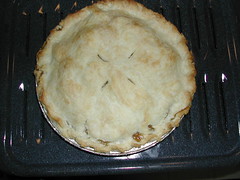by Charles Wheelan
My comments are actually about the 2002 edition.
- I didn’t learn anything. I’ve read a bunch of finance books and a few books on economics, and this book just didn’t add anything substantial for me, so it was a waste of time.
- The author likes to give multiple metaphors to explain economic activities, things like people choosing a line at the grocery store. I found this to be boring padding, ymmv. I’d prefer a straightforward discussion of how it works, and then some detailed discussion of the nuances involved.
- I found the author’s writing style pompous on occasion, which was a turn-off.
- The book struck me as slanted to the right, although it’s probably true that I’m ignoring his minor attempts at appeasing the left. There’s the usual talk about “creative destruction” and rah rah for globalization. The author proposes that inhumane labor practices should be ignored in third world countries – after all, the alternative is prostitution for these workers, and no one is making them work under poor conditions in these factories, they are choosing it of their own free will! So buy your junk from Wal-Mart and feel good about all the tiny kids stabbing themselves with sewing needles for 12 hours a day, because we’re all winners in this equation! We are supposed to believe that only these two options are available, and that we have no say in adding more options for third world workers. There is not one mention of the fair trade movement. Negative effects of capitalism are sprinkled with fairy dust and swept under the rug with “yes, it really sucks to be poor, but we’ll give them a little government subsidy to soothe our consciences, but let’s not dwell on unpleasantness, but instead move right along to the next sterling example of creative destructionism.”




